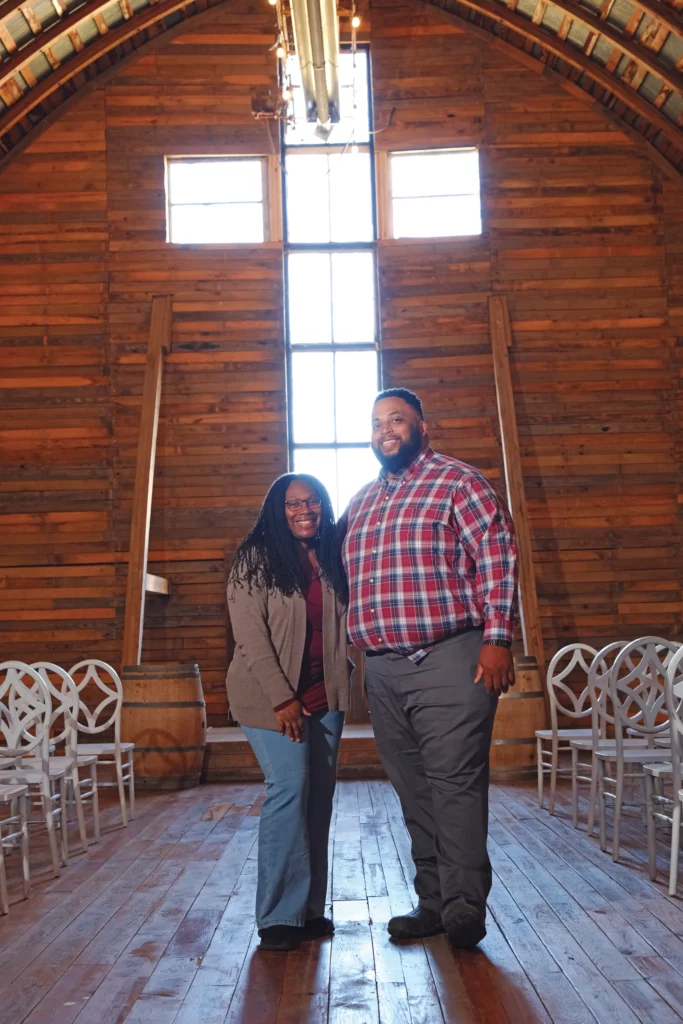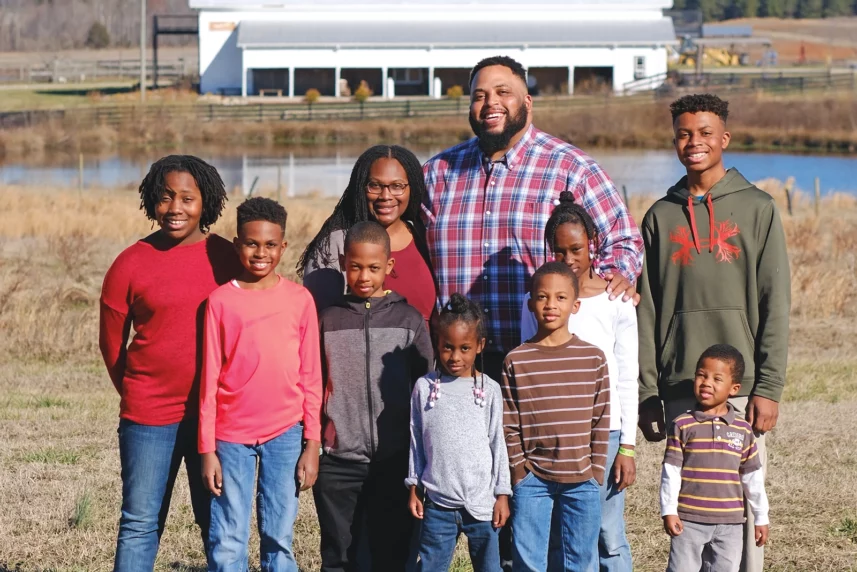Article:
First Fruits
Why Jason Brown traded football for farm life
BY MELISSA WISTEHUFF | PHOTOS BY JOSH MANNING (unless otherwise noted)
On paper, Jason Brown was living every athlete’s dream. Born and raised in Henderson, where he attended Northern Vance High School, Brown played college football for the University of North Carolina at Chapel Hill. He was drafted in 2005 by the Baltimore Ravens as one of the league’s best available centers, and the NFL eventually recognized him as one of the NFL’s highest paid centers. In 2009, the Ravens traded Brown to the St. Louis Rams, where he played until 2011.
Brown accrued millions of adoring fans, a beautiful home and a growing family with his wife, Tay. In 2012, however, he made the shocking decision to flip the script by announcing that he was trading in one field for another. Brown walked away from bright stadium lights to peaceful farm fields in his home state of North Carolina.
Now parents of eight children ranging in age from 3 to 15, Jason and Tay look back in amazement on a decade of accomplishments and trials. There are still reminders of Brown’s football days—he will be inducted into the North Carolina Sports Hall of Fame’s class of 2023 in April—but Jason and Tay are enjoying the new path they have carved. As owners and operators of First Fruits Farm in Louisburg—a 1,000-acre charitable farm about 35 miles northeast of Raleigh—the Browns welcome thousands of volunteers each year. They have given away over one million pounds of produce to food-insecure families across the state. “First Fruits Farm is more than a food ministry,” Brown says. “It is a beacon of hope where folks can see the gospel and love of Jesus Christ at work.” From gridiron grasses to soil and silos, Brown shares his remarkable journey.
What made you decide to leave football to become a farmer?
The first question I always get asked is, “Why?” By all accounts, I was living the American dream. I had everything I wished for, yet there was a feeling that I wasn’t living the life that God wanted me to. I was 27 years old—the same age that my brother was when he was killed in a mortar attack in Iraq—and I knew that I was not living my purpose. So, one day, I asked God what He wanted me to do with my life. His response was clear: He wanted me to move back to North Carolina and feed His people. I knew nothing about farming. This was a total leap of faith, but I knew I had to follow His will. The farm life isn’t “Learn as we go.’ It’s ‘Learn as we grow.’ Poverty should not be synonymous with hunger. Being a farmer means that you always have food on the table. For us, it means that we can make sure that our neighbors have food, too.
How did you learn to farm?
As a football player, I spent the day after every game watching videos of plays to see what went right or wrong. When God told me that my ministry would be in farming and providing food to needy families, I turned to videos again. I scoured YouTube to learn how to farm. You’d be surprised how much useful information is out there!
Once we found our farm, we had a moment of, “What now?” Neighbors came through for us and showed us how to get started, generously giving their time and resources to help us. When we needed equipment, prayers were answered and equipment was donated. God placed a call for service on our hearts, and He has found a way—with the help of the community—to help us succeed through every step of the way.
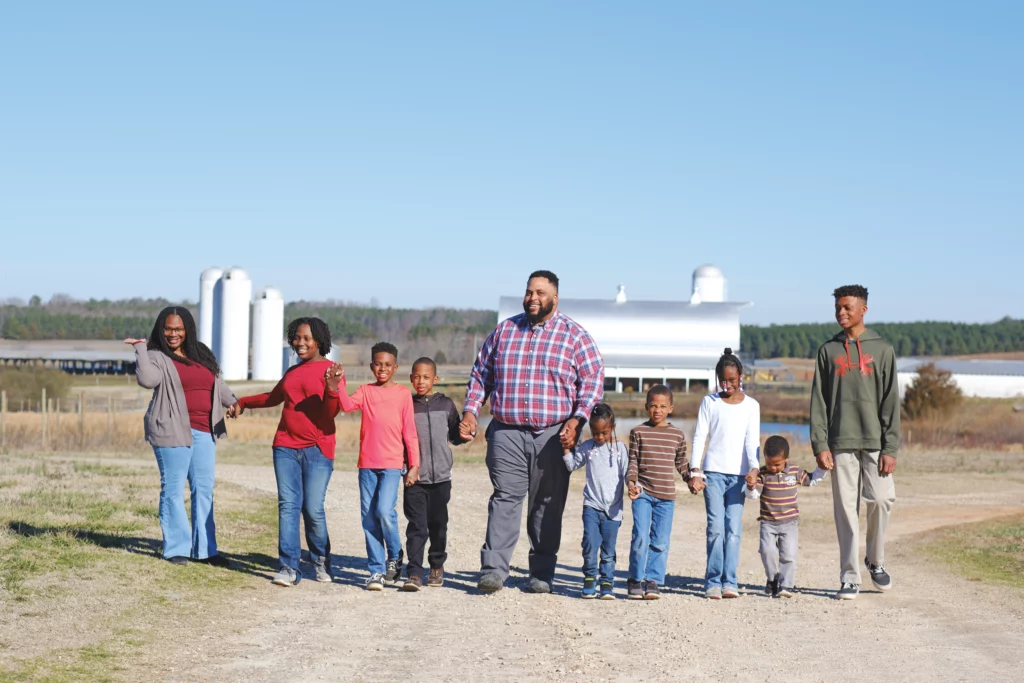
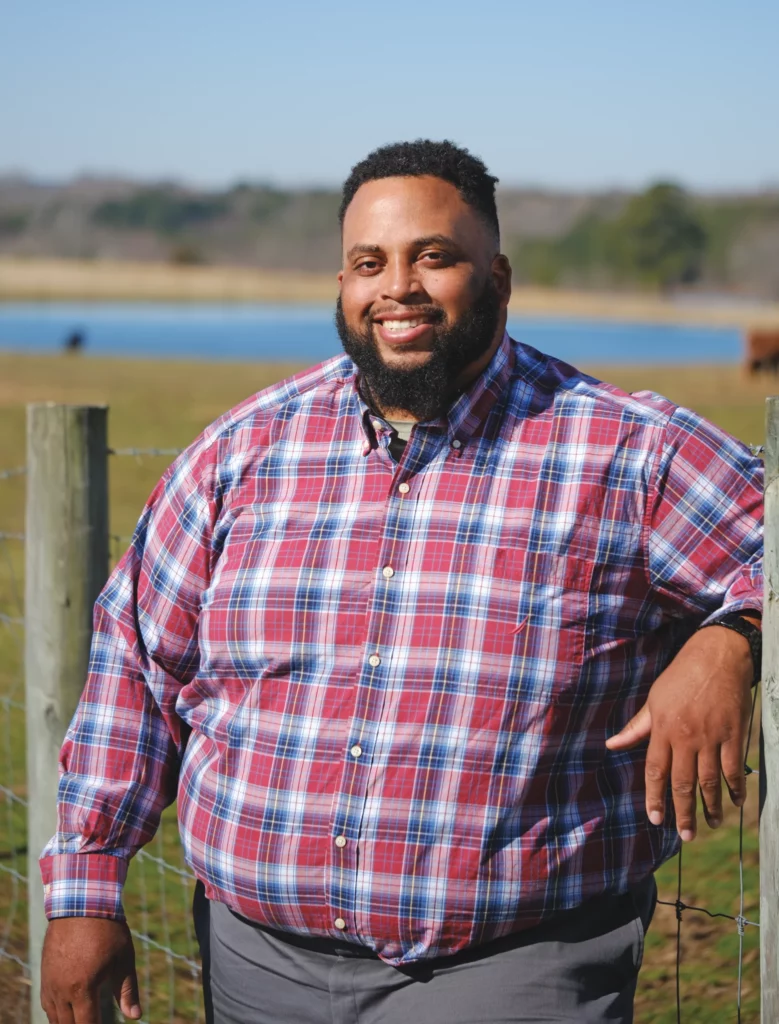
What does an average day look like for your family?
With eight children, no day is average! Everyone in the family has responsibilities, and chores depend on the age of the child. Our youngest children gather eggs and care for the chickens. Our oldest care for the larger livestock—the cows, goats and pigs—as well as other needs on the farm. Each season brings different needs, whether it is planting or harvest time, so every day brings new adventures and new duties.
Since our children are homeschooled, everything is multiplied: School work, cooking, laundry (farm life is dirty!), managing thousands of volunteers each year—yet still carving out time for devotion and fun. We have created a unique model for our lives, and each day on the farm brings something new—weather challenges, equipment that needs to be fixed, field trips scheduled … Life is never dull.
How are you able to make the farm sustainable, since you give away all your harvest?
We rely on “human resources.” Without our volunteers, we would only be a fraction of what we are today. If we had to pay a dollar amount for the countless hours of labor it takes to plant, grow and harvest our produce, we would simply not be able to help as many people as we have.
We recently renovated one of the barns and turned it into a beautiful rental space for weddings and other gatherings, so we are able to use those profits to support the farm. We are looking into other agritourism options to help supplement costs, as well.
What is the most challenging aspect of running First Fruit Farms?
The pandemic threw us for a loop. With so many organizations and churches closed in 2020, we not only had a steep drop in the number of volunteers—we also had a much harder time getting food to the people in the community. The need was higher because so many people were without steady incomes, but it was infinitely more challenging to serve.
Even though farming was considered an essential service, restrictions made it difficult to maintain our mission. Our momentum was disturbed, but we are hopeful that we can get back to our pre-pandemic numbers of volunteers and field trips this year.

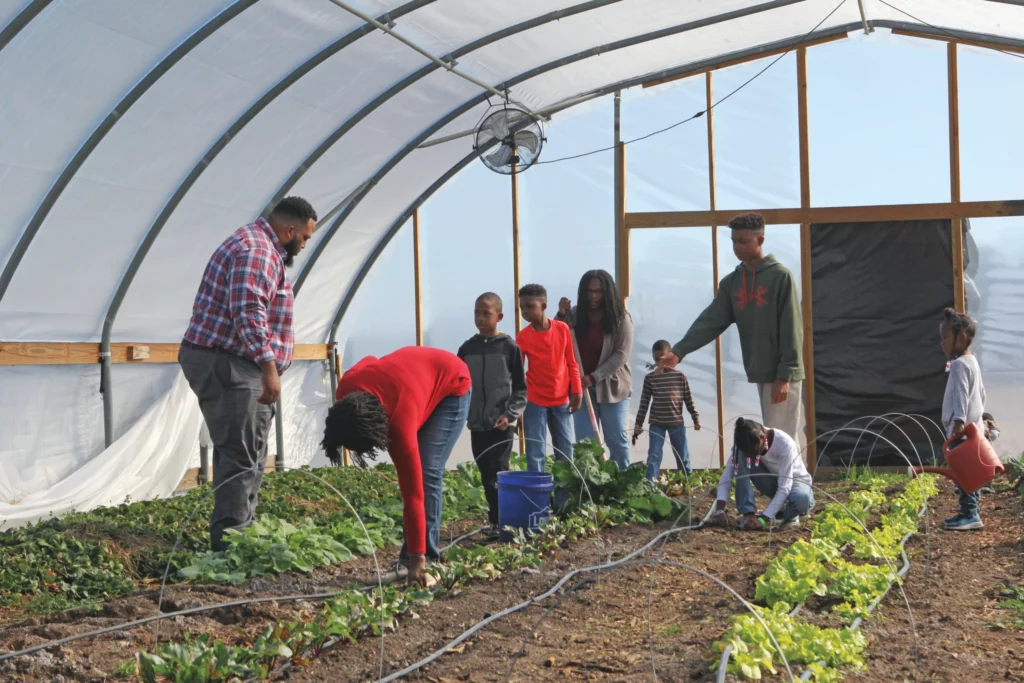
Do you have a stand-out moment since you began this journey?
I love hosting field trips, because it is the first time that many of the children have ever been on a farm. Therefore, [it’s] the first time they have seen, firsthand, where their food comes from. Early last year, students from the Governor Morehead School visited the farm on a field trip. Giving a farm tour to blind children was a unique learning experience—certainly for them, but for me as well. I could not simply point to places on the farm and say, “look at that.” I had to be descriptive with my words, explaining how blueberries are harvested, taking the time to physically feel rows of bushes, touch the wet nose of a farm animal and actively listen to sounds. This tour was more like painting a picture than showing a group around. It gave me a chance to pause and appreciate the intricacies of the farm in a way that I had not before.
If you could go back in time and give yourself advice, what would you say?
I have given myself that scenario so many times, but in the end, there is no cheat code for the last 10 years. There is no one thing that I could possibly tell my younger self that would have made this adventure easier, because it was not supposed to be easy. When you heed God’s call, it’s probably something that is going to take you out of your comfort zone. In my case, farming was considerably out of my comfort zone, and although we have days when we wonder if we are making the right decisions, we continue to keep the faith. So, I guess I would tell myself to keep going. Don’t be fearful; be faithful.
For more information about First Fruits Farm, as well as ways to donate or volunteer, visit wisdomforlife.org.
